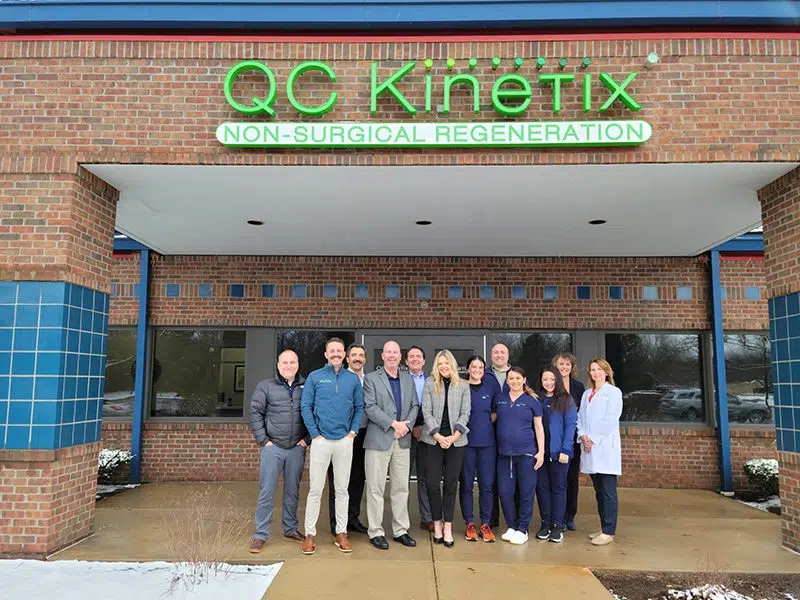
BLOG
Urgent Care Franchise Opportunities: 4 Risks and How to Avoid Them
Blog> Franchise
We are a convenience society. We want our food fast. We want to drive fast. We want our computers to work fast. And we want to get well…fast. We do not want to waste time in the doctor’s office waiting room when we are sick or injured. When we feel puny because of a cough, cold, sprained ankle, dog bite or infection, just to name a few reasons, we expect immediate care to help us get back on our feet. It’s for these reasons that urgent care clinics came on the scene in the 1970s and have propagated from there.

A.k.a. “doc in a box,” the purpose of the urgent care model was to stay open later and give immediate attention to walk-in patients who either could not get an appointment with their own physician, needed help after regular business hours or couldn’t justify a trip to the emergency room. Urgent care was on-demand medicine designed to keep non-emergencies out of the hospital.
The urgency factor in urgent care means there’s no immediate danger or threat to life or health. Too many non-emergency cases were heading to the E.R., so the creation of urgent care alleviated some of those cases.
Seeing the initial success of the urgent care concept, healthcare providers, hospitals and entrepreneurs saw the opportunity. A clinic business model was created and repeated, providing urgent care franchise opportunities. Certainly, using the franchise model meant clinics opened quicker compared with opening a private practice. It also meant simplified operations, business training, ongoing support and lower-cost supplies with thanks to bulk buying power.
Risks in Urgent Care Franchise Opportunities
Many see this as a lucrative medical business even today. But, is it a smart investment? In any business there are risks. Let’s look at a few of those problems in the urgent care industry.
1. Too Much Competition
First, patient demand has set the tone in the industry as patients seek accessibility they can’t get elsewhere. As investors try to meet that demand, the number of clinics in the U.S. is estimated to be at about 10,000. But numbers can be deceiving. As the numbers go up, so does the competition in the urgent care industry. You might be hard pressed to find an urban area without an urgent care facility. Saturating the market with an urgent care on every corner in high-density areas leaves less room for finding a prime location as an investor. Plus, you’re not just competing against other urgent care clinics. You’re competing against retail clinics (i.e., CVS MinuteClinic), walk-in family practices and freestanding emergency departments.
2. Primary Care vs. Urgent Care
Secondly, although urgent care provides convenience, it’s always better for patients to see their primary care physician when possible. Their doctor knows their medical history, will keep better records of illnesses or injury and will provide the follow-up care necessary. Follow-up is non-existent in urgent care. Even if a patient goes back to the urgent care facility where they were diagnosed or treated, there’s no guarantee that they’ll be able to see the same provider — which means they stand a chance of receiving very inconsistent care. Plus, it’s a toss-up whether records from an urgent care visit will ever get into the hands of the PCP.
3. Patient Retention
From an investment standpoint, patient retention is an uphill battle for urgent care clinics. Although a patient may get patched up and feel better after visiting an urgent care, there’s no way to ensure they will ever return. As good as your marketing and promotion is, you make money through the volume of patients coming through the door. If you don’t get the numbers, your clinic will not thrive. That might mean cutting hours to be cost-effective, which in and of itself defeats the whole purpose of urgent care — being available outside the typical work day.
4. Staffing Shortages
While on the subject of staffing, there has been an exodus in the healthcare industry. Blame in on any number of factors including burnout, less quality time with patients and certainly the COVID-19 pandemic, responsible for many qualified staff leaving the profession. With a shortage of general medicine primary care physicians, your business might need to depend more on physician’s assistants and nurse practitioners. Keep in mind that although the after-hours nature of an urgent care is appealing to people in need of help, your staff may be less than pleased to work late nights, early mornings and weekends.
A Better Option: QC Kinetix
Avoiding these pitfalls may mean changing direction. Medical franchises are remunerative, so there’s no need to look far to discover a better option. For entrepreneurs or medical professionals wanting to invest in a medical franchise, that often means turning toward specialty medicine.
QC Kinetix is a specialty medical franchise in regenerative medicine. We are trailblazers in the regenerative medical clinic model. We offer our patients customized regenerative medicine treatments as an effective alternative to the traditional management of pain due to musculoskeletal conditions.
If your goal is to deliver personalized care that brings relief and results, the QC Kinetix franchise is changing the future of medicine. Our franchisee testimonials say it all. Franchise owners are excited to provide non-surgical pain relief to their clients while growing a business with the guidance and training of franchise experts. That’s why QC Kinetix has expanded to over 75 locations since we began franchising in 2017.
The regenerative medicine market is experiencing explosive growth globally. In North America alone, the market is expected to become a $16.5 billion industry by 2026, with the U.S. leading the way.
We are seeking like-minded professionals who want to further the QC Kinetix mission through clinics of their own. If you’ve dreamed of business ownership with great profit potential and the ability to improve quality of life for you and your patients, let’s get started and take the next steps.
Joint & Bone Health Quickstart Program
QC Kinetix Joint & Bone Health supplements help your body to repair and renew injured joint tissues, including cartilage, ligaments, and tendons, while reducing inflammation of the bursae. Unlike steroids or pharmaceuticals, our supplements for joints work with your body to promote healing.
Supplements can boost your overall joint health as part of a general fitness program. However, they are particularly valuable for treating damaged or inflamed and painful joints. The Arthritis Foundation finds that joint health supplements show promise for relieving pain, stiffness, and other symptoms of arthritis.

* Please allow 30-60 minutes of allotted time to meet with a specialist to determine if you are a candidate for our services. Exams are included and are complimentary. By providing your phone number, you agree to receive recurring automated promotional and personalized marketing text messages (e.g. cart/browse reminders) from QC Kinetix at the cell number used when signing up. Consent is not a condition of any purchase. Reply HELP for help and STOP to cancel. Msg frequency varies.
Msg and data rates may apply. View Terms & Privacy.



